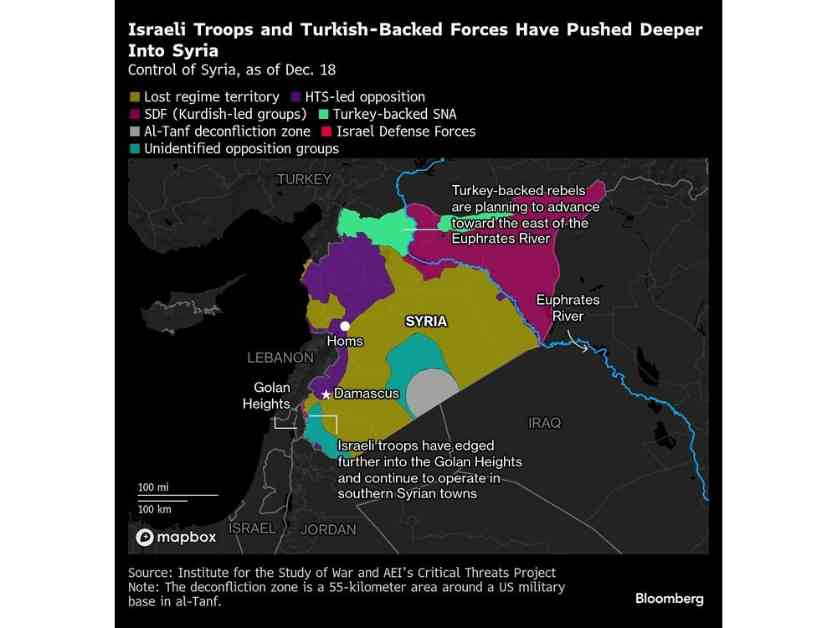Israel and Turkey Redefining Syria’s Future
In the wake of Bashar al-Assad’s ousting, Israel and Turkey are not just reshaping Syria’s leadership but also redefining its borders. While Syria grapples with a new political landscape post-Assad, Israel has swiftly moved troops eastward into a ceasefire buffer zone, heightening concerns about potential threats to Israeli communities. Similarly, Turkey is exerting its influence by pushing back Kurdish groups in northern Syria, aiming to create a buffer zone along the Turkey-Syria border.
Israel’s Strategic Moves
Israeli Prime Minister Benjamin Netanyahu has emphasized that Israel will not allow jihadi groups to pose a threat to its communities. The Israeli military has extended its control over the Golan Heights, a contested territory seized from Syria in 1967. This move not only provides strategic advantages but also ensures security for the local communities residing in the region. The control of the Golan Heights has been a subject of international dispute, with the United Nations still recognizing it as part of Syria.
Amidst these territorial advancements, Dolan Abu Salah, head of the council in Majdal Shams, a village in the Israel-controlled part of the Golan, expresses a mix of emotions. While the fall of Assad brought joy to the community, he underscores the importance of a security zone as a safeguard for the Golan Heights residents. The sentiment in the region reflects a delicate balance between security concerns and the potential for lasting peace with the new Syrian leadership.
Turkish Influence in Northern Syria
On the other front, Turkey has been actively involved in shaping Syria’s future by supporting the Syrian National Army’s efforts to seize territory from Kurdish forces. President Recep Tayyip Erdogan’s primary objective is to establish a buffer zone along the Turkey-Syria border, albeit facing challenges in its entirety. The engagement with Hayat Tahrir Al-Sham (HTS) signifies Turkey’s strategic interests in the region and its aspirations to play a pivotal role in post-Assad Syria.
Nabih Al-Halabi, a resident of Majdal Shams, echoes a sense of optimism regarding a potential Israel-Syria peace deal post-Assad. While acknowledging Israel’s security concerns, he emphasizes the importance of stability in the new regime in Damascus to pave the way for a lasting peace agreement. The perspectives from the local residents shed light on the complexities and nuances of the evolving geopolitical dynamics in the region.
Turkish Foreign Minister Hakan Fidan’s remarks underscore Turkey’s nuanced approach towards engaging with the new Syrian administration and groups like HTS. Turkey’s strategic calculations align with its long-term interests, including addressing the refugee crisis and positioning itself as a key player in postwar reconstruction efforts. The evolving landscape in Syria presents both challenges and opportunities for Israel and Turkey, shaping the future trajectory of the region.






















